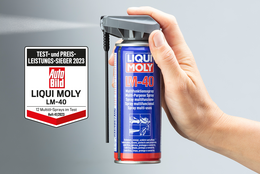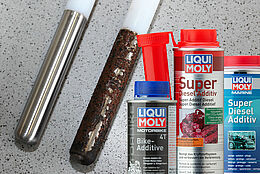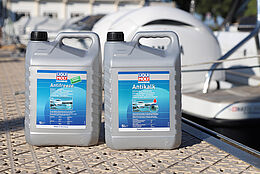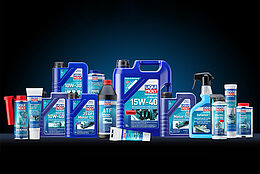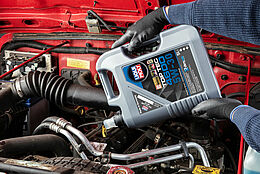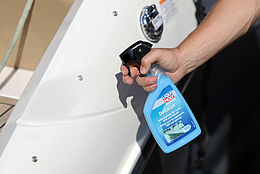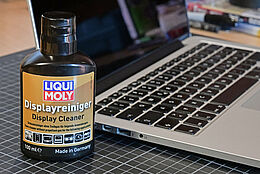- 4min
Long-lasting protection for boat engines

The typical diesel problem in the marine sector
Due to the significant proportion of biodiesel in modern diesel fuels, winterizing or running boats only rarely is particularly dangerous. Over time, the organic content in the fuel can cause microorganisms such as bacteria, yeasts and fungi to form in the tank and create a kind of sludge. This happens, in particular, when the fuel has a high water content due to moisture or condensation in the tank. A clear case of diesel bug.
However, it is not only bacteria that are problematic, but also resinous residues that occur due to a change in the chemical composition of the diesel fuel during aging.
The consequence: clogged nozzles and diesel filters. A clogged filter leads to a reduced power output and, in the event of a complete blockage, to a standstill of the engine. Deposits on injectors and nozzles even paralyze the injection system. Such failures will result in serious damage to the engine. And then you have to deal with expensive repairs and extensive cleaning of the tank and the entire fuel system.
This is noticeable, among other things, by irregular engine running or unusual smoke development.
Problem solver
Is your diesel engine already affected? If the infestation is not yet too advanced, a shock dose may help (increased dosage; see label or application description).
Nevertheless, the resulting sludge must be extracted from the tank and the diesel filter replaced. Then perform the shock dosing again the next time the tank is filled. This will kill any bacteria remaining in the system and the fuel lines.
Prevention
Prevention is better! The easiest thing is to move the vehicle regularly. If the vehicle has to be parked up for a longer period of time, it can help to completely empty or fill the tank. This reduces the formation of condensation in the tank. But there is no guarantee that this will stop the diesel bug from spreading!
You can play it safe with the regular use of an anti-bacterial diesel additive. Even a low dose optimally prevents the formation of deposits and bacteria and is considerably cheaper than costly repairs or engine system cleaning.

Our expert tip for decommissioning boats with diesel engines
“After filling the additive, take the boat for a little spin. This will help the additive to also pass through the filter, the pipes and the entire system. All components, including injectors and pumps, will then be protected by the preserved diesel.”
David Kaiser
Head of Research and Development

